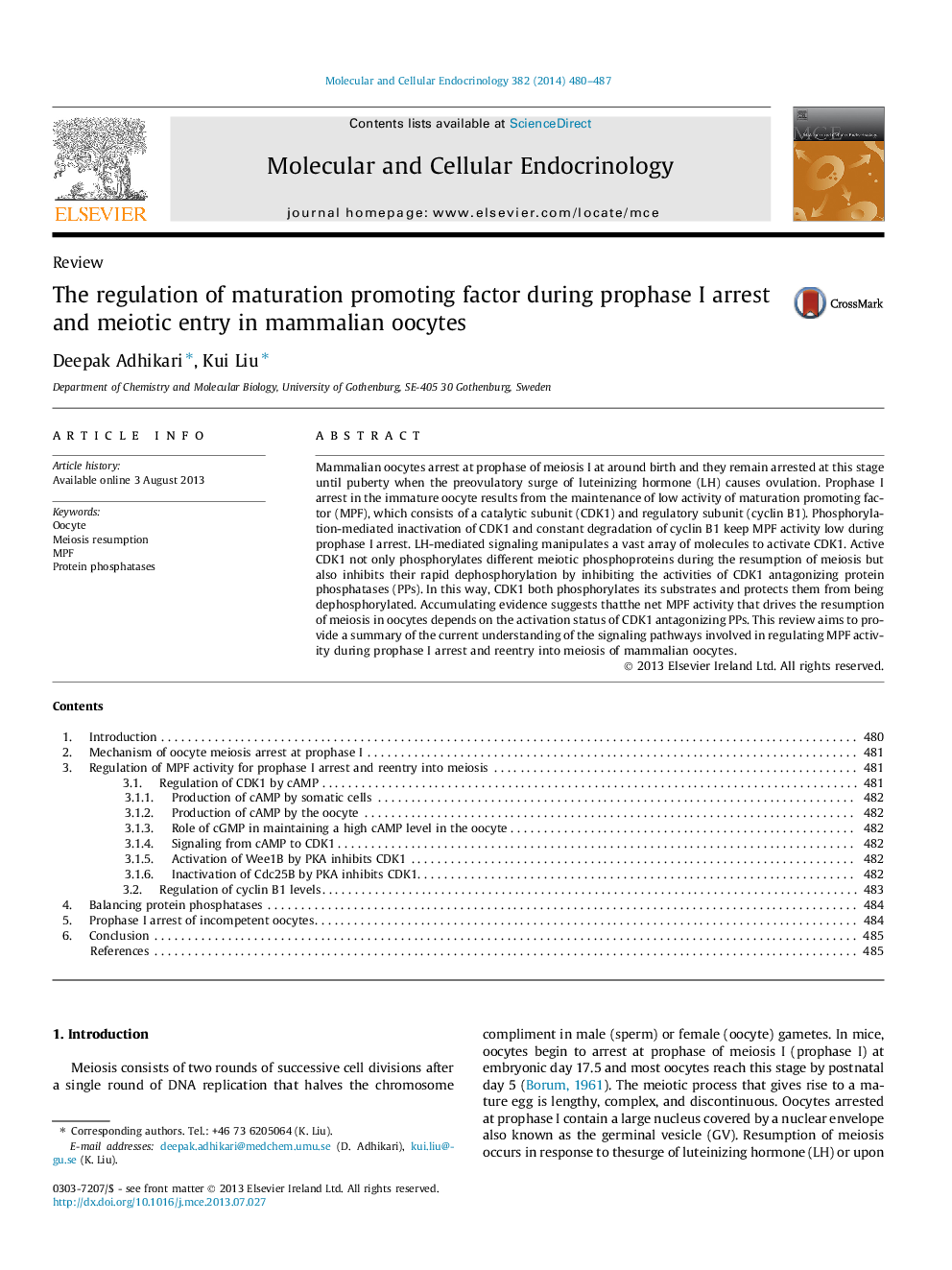| Article ID | Journal | Published Year | Pages | File Type |
|---|---|---|---|---|
| 10956150 | Molecular and Cellular Endocrinology | 2014 | 8 Pages |
Abstract
Mammalian oocytes arrest at prophase of meiosis I at around birth and they remain arrested at this stage until puberty when the preovulatory surge of luteinizing hormone (LH) causes ovulation. Prophase I arrest in the immature oocyte results from the maintenance of low activity of maturation promoting factor (MPF), which consists of a catalytic subunit (CDK1) and regulatory subunit (cyclin B1). Phosphorylation-mediated inactivation of CDK1 and constant degradation of cyclin B1 keep MPF activity low during prophase I arrest. LH-mediated signaling manipulates a vast array of molecules to activate CDK1. Active CDK1 not only phosphorylates different meiotic phosphoproteins during the resumption of meiosis but also inhibits their rapid dephosphorylation by inhibiting the activities of CDK1 antagonizing protein phosphatases (PPs). In this way, CDK1 both phosphorylates its substrates and protects them from being dephosphorylated. Accumulating evidence suggests thatthe net MPF activity that drives the resumption of meiosis in oocytes depends on the activation status of CDK1 antagonizing PPs. This review aims to provide a summary of the current understanding of the signaling pathways involved in regulating MPF activity during prophase I arrest and reentry into meiosis of mammalian oocytes.
Keywords
Related Topics
Life Sciences
Biochemistry, Genetics and Molecular Biology
Cell Biology
Authors
Deepak Adhikari, Kui Liu,
